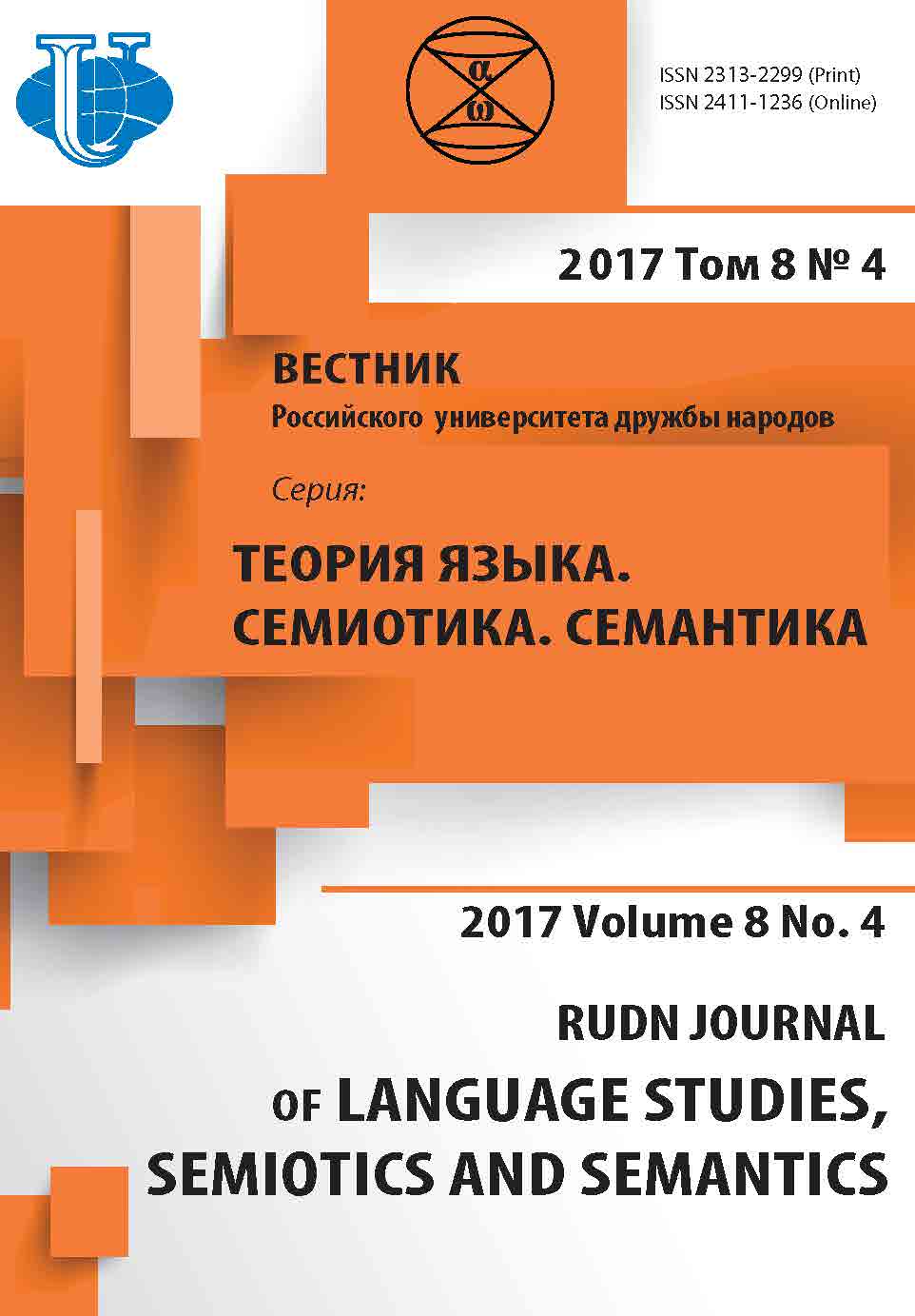THE PROBLEM OF TRANSLATING THE VERBAL COMPONENT OF THE CREOLIZED TEXT OF THE POLITICAL CARICATURE (Based upon the Material of the Arabic and French Languages)
- Authors: Dugalich N.M1
-
Affiliations:
- RUDN University
- Issue: Vol 8, No 4 (2017)
- Pages: 902-911
- Section: ARTICLES
- URL: https://journals.rudn.ru/semiotics-semantics/article/view/17968
- DOI: https://doi.org/10.22363/2313-2299-2017-8-4-902-911
- ID: 17968
Cite item
Full Text
Abstract
The article is devoted to the problem of translating the verbal component of the creolized text. The study was conducted on the basis of the Arabic and French languages. The author considers strate-gies for translating the verbal component as an integral part of the creolized text of a political caricature. The object of research of the proposed work is the text of a political caricature. The subject of the article is the peculiarities of translating the verbal component from French and Arabic into Russian in combination with visual and paralinguistic components of the caricature. The relevance of the proposed work is related, on the one hand, to the general linguistic interest in the typology of creolized texts and, on the other, to the lack of comparative studies in the scientific tradition on the basis of the French and Arab political cari-catures. The methodological base of the scientific article is the work of researchers of the creolized text as a special sign system having an integrative communicative effect, E.E. Anisimova, Yu.A. Sorokin, E.F. Tarasov, and linguists, dealing with the problems of theory and tactics of translation, L.S. Barkhudarov, V.N. Komissarov, A.P. Parshin, Ya.I. Retsker. The study was conducted on the basis of more than 100 cari-catures in the Arabic and French languages devoted to political events and political leaders of Algeria, Egypt, Russia, Syria, the United States and France.
About the authors
Natalia M Dugalich
RUDN University
Author for correspondence.
Email: avsineeva_nm@rudn.university
Natalia M. Dugalich, Senior lecturer of the department of foreign languages, RUDN University; academic interests: pragmatics, discourse analysis, methods of teaching foreign languages, comparative linguistics
Miklukho-Maklaya st., 6, Moscow, Russia, 117198References
- Baranov, A.N. & Karaulov, Yu.N. (1991). Russian political metaphor: Materials to the dictionary. Moscow: Institute of the Russian Language, USSR Academy of Sciences. (In Ru ss.)
- Popova, E.A. (1995). Cultural and linguistic characteristics of polit ical discourse (based on newspaper interviews): [dissertation]. Volgograd. (In Russ. )
- Sheigal, E.I. (2000). Semiotics of political discourse: [dissertation]. Volgogra d. (In Russ.)
- Sorokin, Yu.A. & Tarasov, E.F. (1990). Creolized texts and their communicative function. In Optimization of speech influence. Moscow. (In Ru ss.)
- Anisimova, E.E. (1996). On the integrity and coherence of the creolized text. To the formulation of the problem. Philological Sciences, 5. (In Ru ss.)
- Barkhudarov, L.S. (1975). Language and translation. Moscow. (In Russ.)
- Komissarov, V.N. (1980). Linguistics of translation. Moscow: Mezhdunarodnye otnoshenija. (In Ru ss.)
- Parshin, A.V. (2000). Theory and practice of translation. Moscow. (In Russ.)
- Retsker, Ya.I. (2016). Translation theory and translation practice. Essays on the linguistic theory of translation. Moscow: AUDITORIA. (In Ru ss.).
- Anisimova, E.E. (2003). Linguistics of the text and intercultural communication (on th e basis of cre olized texts). Mosc ow: Academia. (In Russ.)
- Gak, V.G. & Ganshina, K.A. (2002). A new French-Russian dictionary. Moscow: Russk ij jazyk. (In Russ.)
Supplementary files












